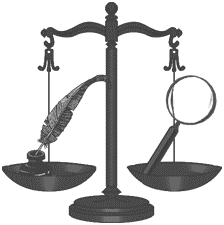 Juan, a commentator, told me he had sent a “Down with Fidel” email to the newspaper Granma, knowing that it is a crime in Cuba. He asked me what sanction they would impose if they found out who he is.
Juan, a commentator, told me he had sent a “Down with Fidel” email to the newspaper Granma, knowing that it is a crime in Cuba. He asked me what sanction they would impose if they found out who he is.
First, I don’t believe that the Cuban authorities are going to pursue him for sending a message. If they can identify him (as a specific person with all his particulars), at a minimum, they will not let him enter the country. I am delighted for this person to know the Cuban criminal law.
The current criminal law protects leaders, officials, and state institutions against negative expressions and opinions of the citizenry. In other words, criticism in Cuba can be a crime.
The Criminal Code regulates various offenses to protect the honor of the people from general forms of defamation, slander, and insult. But protection against disrespect is given exclusively to the authorities, over and above the crimes mentioned above.
The penalty is a fine or imprisonment of three months to a year to those who “threaten, slander, defame, insult, injure or in any way outrage or offend, verbally or in writing, the dignity or decorum of an authority, public official, or their agents or assistants, in the exercise of their duties or at the time of or because of them.”
The initial penalty against Orlando Zapata Tamayo was for committing this crime. A prisoner of conscience, he died in prison after 86 days of a hunger strike. He was sentenced to three years in prison, because the offense is aggravated when committed with respect to the President or members of the State Council of Ministers and the National Assembly. Thus, it is a common crime strongly tied to politics.
This means that mocking the comrade who reflects,* calling him stupid for his incoherent policies, or labeling the speaker of parliament a cynic, can be interpreted by the police as a crime of contempt.
Juan also asked me how the Cuban authorities could identify him. I don’t know. I am only warning him of the risks.
The commentator is right when he says that “Cuban criminal law is applicable to all crimes committed on national territory or aboard Cuban vessels or aircraft, wherever they are, except as otherwise provided by treaties signed by the Republic” (Criminal Code Article 4.1).
But he must carefully read Article 15.1 of the same law. The rule specifies that “the place of the commission of a crime is where the agent has acted, or has failed to carry out a required act, or where the effects are produced.”
Juan should remember that, although he lives in Spain, when he comes to the island he is treated as a Cuban citizen, and Article 5.1 of the Criminal Code states that “Cuban criminal law is applicable to Cubans and stateless persons residing in Cuba who commit crime abroad, if they are found in Cuba or are extradited. ”
The criminal laws, to our regret, are very general and abstract. Let me explain: they contain very broad descriptions of acts (part of the standard that describes the prohibited conduct). This allows the regime to interpret and apply them loosely and as they choose. In Cuba, the judiciary depends on instructions from the State Council. This is according to the Constitution of the Republic.
If Juan wants to be sure that he will not be prosecuted if he enters Cuba, I recommend that he wait for the time prescribed in the criminal code. That is, the time that starts running from the day he sent the message. According to the sanction that applies to the crime of contempt, it is three years (Criminal Code, Article 64.1, subsection d).
* Translator’s note: Fidel Castro writes a column in Granma that until recently was titled “Reflections of Comrade Fidel.”
Translated by: Tomás A.
